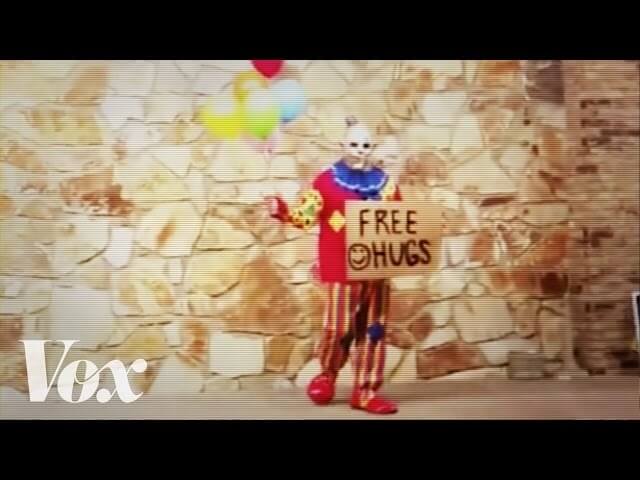The historical roots of America’s current anti-clown madness

The professional clowning community has a serious image problem in America. In recent weeks, stories of so-called “creepy clowns” and “killer clowns” have been popping up all over local newscasts across the country and disseminated through social media. While parents and educators express concern for the safety of children, the ones in real danger may be the clowns themselves. In 2016, anyone who dares to leave the house dressed as a clown may become the victim of a vigilante or even an angry mob. Vox attempts to sort through the madness in an informative seven-minute mini-documentary called “America’s Creepy Clown Craze, Explained.” Produced and narrated by Christophe Haubursin, the video not only explores the current wave of clown-related pranks but also the longstanding historical roots behind the current, widespread anti-clown sentiments.
Some may assume that the public’s fear of clowns, or coulrophobia, began with John Wayne Gacy, the Illinois serial killer who performed at charity events and children’s parties in the guise of “Pogo The Clown.” But Haubursin traces the problem back to the 19th century, when a man named Joseph Grimaldi was “the most popular entertainer in England.” Grimaldi’s costuming and makeup set the precedent for modern day clowns, but his private life was marred by depression and alcoholism. Writer Charles Dickens immortalized Grimaldi’s private struggles, first by editing his memoirs, then by including a “disturbed clown character” based on Grimaldi in his 1837 novel The Pickwick Papers. That changed the public’s perception of clowns in general.
Today, there are few positive clown role models in popular culture. The two jesters best known to the public are Batman’s murderous nemesis, Joker, and The Simpsons’ “morally, financially, and physically bankrupt” Krusty The Clown. It’s gotten so bad for clowns out there that some are being arrested for “disorderly conduct” simply for wearing their work clothes in public places. Organizations like the World Clown Association may try to redeem the art form, but the damage may be irreparable.
[via Laughing Squid]